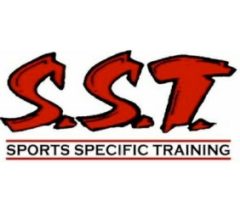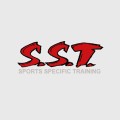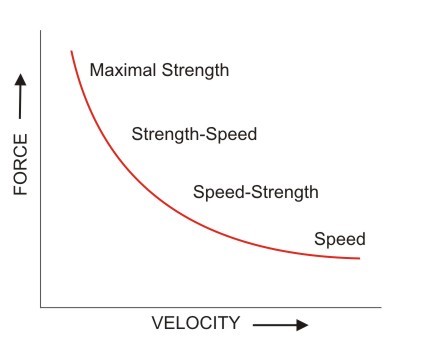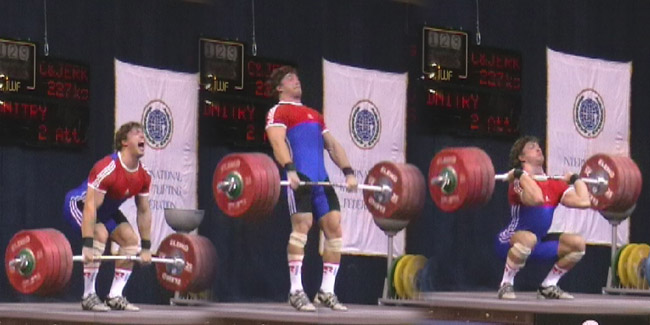If you are just getting into the spirit of using a strength coach or personal trainer and want to know what to look for, hopefully I can offer some advice. I have been in this field for over 14 years and have seen a lot. I’ve traded new information with colleagues, and used mentors and libraries of information to learn what I now know. But the learning never stops! I am always seeking what is best for my clients.
Many people have asked me what to look for when hiring a strength coach or a personal trainer; I think the answers are the same in either situation.
I used to think education was the most important credential and trust me I believe this lays down the foundation of the science of personal training which is very important but not the only thing to look for. I have seen many good coaches who don’t have a post-secondary degree have success but I have seen many more trainers who have a degree and then take a 2 day course and now think they are EXPERT personal trainers after one weekend!
Here are some of the attributes I think a client should look for:
Passion
I have just returned from a speaking engagement and workshop in cloudy southern California (June Gloom!) where a couple of things really stood out. On the first day I had the pleasure of teaching 50 personal trainers about Functional Applied Speed Training for Power Systems.
I was overwhelmed and surprised by the passion and love for training and knowledge these coaches exhibited. Some had come from as far as Canada and New York all the way to California for a full day of learning. Right away (8 am) the audience was engaging and very receptive to learning. Never once did I have to beg for a volunteer, in fact I had to beat them away with a stick when we went into the practical sessions. This is what I call passion!
The next day I was fortunate to pair up with a good friend and great strength coach, Scott Prohaska. He had arranged for the training of 15 athletes, ranging from Olympic bobsledders to division one football players to rep baseball players. Coming into this I knew all these high -level athletes would have passion, but the passion from Scott was amazing. Not only was he encouraging, but he tried every drill I put each athlete through. At the end of the session he told me that he has brought in many people in to speak with his athletes and was pleased to report that his athletes told him that they enjoyed the day mainly due to my passion and the fact that I was right there in the trenches with them. This is what I love to do!
Later that day Scott and I went for dinner and discussed how many hours we work per week?
70-80 hours was the answer. I have asked many professionals, in other fields, the same question and they often admitted to working similar long hours. When I ask why they work so many hours each week, the common answer was not just that they have so much work to do, but rather, that they love what they do. You can actually see the true passion in their manner. People who are successful put the time into their field of work, but the ones who are truly dedicated, do it for the love of it! Their passion shows, in fact it oozes out of them – because you can not fake passion! As one of my clients, JoAnn, says “Love it!!”
See my recent video on this point: Video I – Passion CLICK HERE
Leave your Ego at the Door!
This is probably one of the most important ideals, and one of the most difficult for many coaches to acquire. I see big egos every time I travel and watch other coaches teach.
Let’s use my friend Scott for example. His strength is his ability to help his clients get strong . . . he does a GREAT job at this, but he understands his limitations, in this case, speed training. What did he do but seek out someone to help him and his athletes. He left his ego at the door!
I did the same thing for some of my female clients when I discussed nutrition and training with top physique coach, Francine from Montreal. Her insight was tremendously productive in helping my female clients achieve success. I often bring in nutrition experts such and Caryn from Biotics Nutrition to teach the SST staff, enabling us to better help our clients. Again I remind you, your trainer should be able to leave ego at the door!
Remember the bottom line is that strength coaches and personal trainers are here to help you. Whatever it takes, coaches should try to ensure the best for their clients.
We, as coaches and trainers, all like to boast about our clients’ successes and sometimes market them (before and after stories), but remember this (and I tell all my parents and athletes this): You are the one who committed yourself to the project and you must be the first one to put forth a great effort . Our trainers are ready to work hard for you, and you must be ready to work too. I just wrote up a program to encourage you to reach your goals . . . you and your trainer’s best efforts!
Continuing Search for Educational Resources
Consider the strength coaches who attended this past seminar. They took time from their busy schedule to spend a whole day to better their techniques. They are determined in their search of new educational information. Next time you are looking for a trainer/coach ask how many seminars and what other types of education they take part in. At SST, the minimum goal is to attend one new seminar each month to better ourselves. Even if I only discover one new thing, both my client and I will be better for it.
These last few weeks, I have been reading books, articles, DVDs and anything I can get my hands on regarding cancer and nutrition. Why? One of my clients has been diagnosed with cancer and I feel an obligation to do the best I can to help him get better. This is the kind of dedication I look for when hiring strength coaches.
Another good friend, one of the most learned nutritionists in the world, John Berardi spends countless hours researching and discovering new information about the human body. He has PASSION which leads him to the never-ending search of new and important information; the ongoing search for education! Why do you think he is the best? Passion and education!
So next time you are looking for a trainer/coach, don’t be afraid to ask them questions as if you’re conducting a job interview; which you, in fact, are.
See my recent video on this point: Video III – Continued Education CLICK HERE
Results
Yes, results are the bottom line. Why do you think the TV show, Biggest Loser is such a hit? People are getting results and that’s what everybody wants! Most people want instant success. If a coach tells you that you can drop 20 pounds in two weeks, be very leery. Success takes a lot of work, as in anything worth while, and there are no short cuts. So don’t expect shortcuts in weight loss or training either.
Ask your coach or trainer what successes they have had, and be specific. If you are a female client ask about successes with female clients. If you’re an athlete, ask about who the trainer has helped?
Do you see a theme here? The best coaches all have passion; all exhibit a keen interest to learn more in an endless study of research; a good coach stashes his/her ego. All these combined will give the client excellent results. Notice I did not mention certification? The reason for this is that some trainer certifications are done on line or through a weekend course (some are actually pretty good) Now, this is better than nothing I guess, but imagine dealing with a doctor who received his accreditations at a weekend seminar. Don’t get me wrong, it’s great to get certification but the trainer/coach must still continue their education throughout their lifetime.
So, when looking for a good coach/ trainer please ask these questions and remember you will only get the results you want from the effort you and your trainer put into it. Some Coaches may only be working with you for two hours a week. So get off the couch, get ready for summer, and find yourself a great coach!
See my recent video on this point: Video II – Results CLICK HERE
For more information and access to great articles and videos please visit www.sst.training
Larry Jusdanis
Owner, Sports Specific Training
www.sst.training



